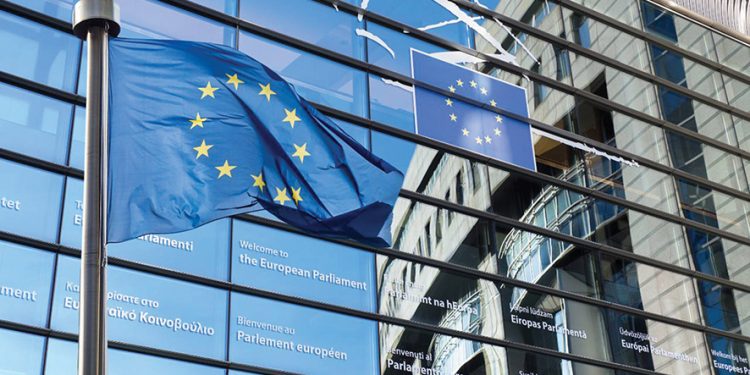The European Parliament adopted a resolution on the decline of democracy and threats to political pluralism in Georgia with 495 votes in favor and only 73 votes against. This resolution expresses grave concerns about the erosion of democratic values in Georgia, and outlines specific measures that the European Union can take to respond. The draft calls for the suspension of EU aid for the Georgian government and sanctions against BidzinaIvanishvili, as well as other individuals responsible for the democratic decline. It also calls for a thorough evaluation of anti-democratic laws regarding visa liberalization criteria.
The resolution also demands that the Georgian Government cease its campaign against political opponents, and stop spreading anti-Western misinformation. The resolution calls for sanctions against Russia, the release on humanitarian grounds of former president Mikheil Sakaashvili, and a commitment towards a peaceful power transfer based on the results of the upcoming elections. The draft resolution highlights a troubling trend in Georgia that has been taking place in recent months. This is marked by an increase in attacks on democratic standards.
The joint resolution was drafted by several political groups in the European Parliament including the European People’s Party, European Conservatives and Reformists, Renew Europe, Greens, and Social Democrats. The resolution reflects a united stance against the threats to Georgian democracy. The resolution notes that the “Foreign Agents Law”, laws limiting LGBTQ+ and changes to Georgia’s election code have all raised alarms. The authors express their concern over the Georgian Dream Party’s promise to ban the opposition and its growing anti-Western rhetoric towards Georgia’s democratic partners.
The draft resolution states that “this hostile rhetoric also applies in Ukraine, where the ruling party uses vile banners depicting Ukrainian towns destroyed by Russia, and profits from the sufferings of brave Ukrainians”, drawing attention to the harmful consequences of the ruling parties’ political strategies. It also highlights the disturbing approval of statements by Russian officials that Moscow could help Georgia normalize relations with the separatist region of South Ossetia and Abkhazia. This is a major departure from the previous policy of the government, which recognized these regions as occupied.
The European Parliament’s resolution expresses its deep regret for the continuing democratic backsliding that is taking place in Georgia, especially as the country prepares to hold parliamentary elections on the 26th of October. The resolution strongly condemns the adoption by the Georgian government of laws relating to “transparency and foreign influence”, “family values, and protection of minors” as it views them as tools that violate freedom of expression and censor media. The resolution stresses that these actions are incompatible to the values of the European Union, and harm Georgia’s reputation internationally, jeopardizing the Euro-Atlantic Integration.
The resolution states that “[the European Parliament] condemns Bidzina [Ivanishvili], the Georgian oligarch who returned to active political life on December 30, 2023 when he became ‘honorary chair’ of the party ‘Georgian Dream,’ in the current crisis and in laying the foundations for the country’s EuroAtlantic orientation to turn towards Russia,” The resolution calls for targeted and immediate sanctions against Ivanishvili, for his role in undermining Georgia’s political landscape. It also reaffirms that all individuals responsible for spreading antidemocratic practices must be held accountable.
In a sign of recognition of Georgia’s ambitions, the resolution notes in a significant way that the European Council granted Georgia the candidate country status on December 14 and 15 2023, subject to the implementation of recommendations made by the European Commission. The recently adopted laws, however, are seen as being in contradiction to these ambitions and impeding Georgia’s integration into the European Union.
The resolution also reiterates Saakashvili’s immediate and unconditional freedom on humanitarian grounds and highlights the government’s responsibility for his safety and health.
Shalva Papuashvili, the Georgian Parliament’s Speaker, said at a press briefing that “the resolution which the European parliament will adopt today goes far beyond our usual disappointment.” He criticised the resolution for being based on “false stories and personal attacks,” especially regarding the call to sanction Ivanishvili.
“The message which urges the imposition of sanctions against Bidzina is disturbing.” He added that this is the third EP resolution in which certain forces use EU institutions to attack Bidzina and incite political revenge. Papuashvili argued the resolution reflects a obsession with Ivanishvili, and misrepresents Ivanishvili’s role in maintaining peace.
He also condemned the demand for unilateral sanctions against Russia, saying, “It’s disgusting to demand the imposition bilateral sanctions against Russia in the EU’s first official resolution.” However, he warned that such sanctions could lead Georgia into an economic crisis and increase the risk of a military confrontation.
Papuashvili expressed concern about the timing of the resolution which came just days before elections, describing it as an attempt by the government to manipulate voter sentiment. He called on all foreign actors, including the United States, to respect Georgian sovereignty and democratic processes.
The resolution of the European Parliament reflects an important juncture in Georgia’s history as it struggles to maintain its democracy and navigates complex geopolitical forces. As the country prepares for pivotal elections, accountability and adherence of democratic norms is more important than ever.
Read More @ georgiatoday.ge













